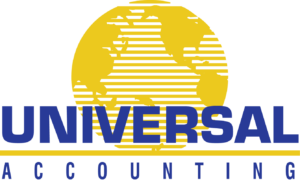
In a recent Small Business Trends article entitled “How I Outsourced My Non-Core Sales Tasks,” author Chris Hamilton details the process in determining whether or not a core task should be handed off to someone who can perform the task for you, freeing up your time for revenue-generating projects. Here are the five steps Hamilton describes:
1. Keep Track of What You Do During the Day. List the tasks that you spend time on.
2. Determine if it Helps You Generate Revenue or Not. Of each task, ask yourself, “If someone else did this, would it allow me to focus on those activities that will make me money?” If the answer is “yes,” you should outsource the task.
3. Map Out the Process. After you determine which tasks need to be outsourced, document the steps necessary in properly completing the task—that way, if you hire someone else to do it for you, they can duplicate your process. Before handing that task off to someone else, however, Hamilton suggests having a friend run through your steps to see if they understand your instructors.
4. Find Someone to Take on This Chore. Depending on the task, you may need to ask colleagues for references, put an ad in the classifieds or search the yellow pages for contract workers who specialize in the task.
5. Monitor the Work Being Done. Outsourcing does you no good if the task isn’t being completed properly. You should monitor the person you’ve outsourced the task to until you feel comfortable enough with their performance to allow them to work more independently.
Hamilton was driven to reevaluate his core-tasks when he realized that,”…in a typical day, I was spending about 50% to 60% of my time on sales tasks that didn’t generate revenue. Once I figured this out, I realized that I could be way more efficient and generate more sales.”
To ensure that your work day is comprised of revenue-generating tasks, it’s important that you test Hamilton’s process. You may find that outsourcing more than pays for itself.
Become the Professional to which Small Businesses Outsource Their Accounting
Certain functions are necessary in order for a business to be successful, and accounting is one of them. Unfortunately over 50% of small businesses fail, and much of that failure can be attributed to poor financial management. If you were to become a small-business accountant, you would be the person to which these small businesses outsource their accounting tasks.
Most of your competitors don’t offer specialized small-business accounting services. But after completing the Professional Bookkeeper (PB) program, you can! Consider a training program that is catered to your needs and busy schedule—one that will enable you to earn a professional designation after just 60 hours of your valuable time.
When you enroll in the Professional Bookkeeper Program you receive to the following:
- Flexible training you complete on your own schedule
- Rich and engaging training DVDs you can view again and again
- Hands-on instruction and practice sets through which you gain much-needed experience
- Training in building and marketing your new practice
- 6 months of valuable follow-up support
- The opportunity to earn professional certification
- Our iron-clad risk-free guarantee
Expand your service offerings by enrolling in UAC’s valuable training programs. Call 1-877-833-7909 to enroll today!
Resource
Hamilton, Chris. “How I Outsourced My Non-Core Sales Tasks.” 16 May 2013 SmallBizTrends.com
Share this post: on Twitter on Facebook on Google+




